Watering plants with milk: should you do it and what are the benefits?
If you've never considered watering plants with milk, it could be time to give it a try if you're looking for an easy way to get healthier garden plants

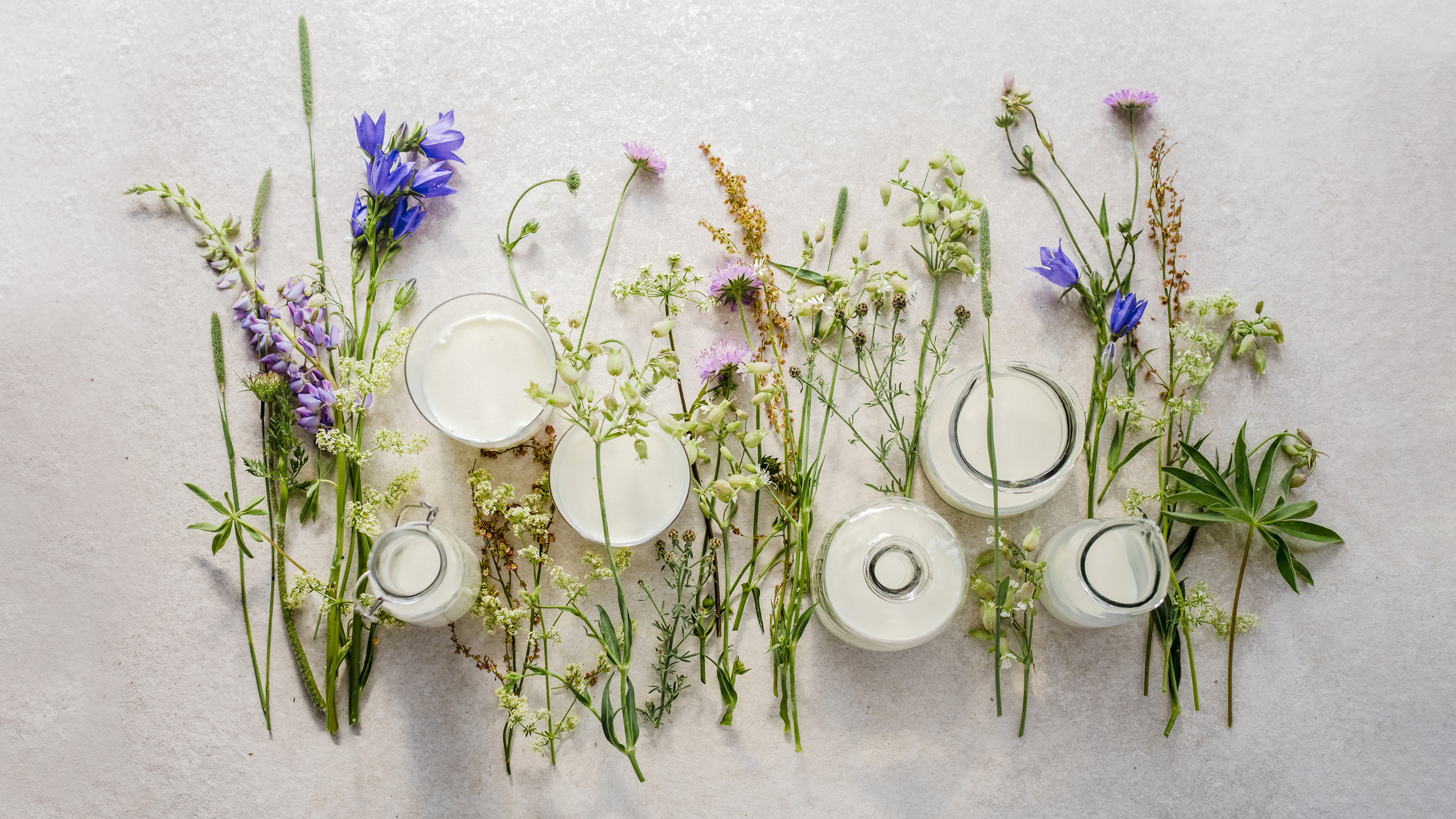
Watering plants with milk may sound like a slightly wacky idea if you’ve not done it before. But there are plenty of reasons why it could benefit your plants. Milk contains proteins, minerals and bacteria that are good for humans, so could be good for plants as well.
Plus, milk contains substances that can help prevent and treat fungal and bacterial diseases, affecting garden plants. And by using a non-chemical treatment, you’re doing your bit to help the planet and avoid harming beneficial insects.
Milk is far less risky for the user than using chemical fungicides or pesticides, and watering plants is a great use for leftover milk that is slightly sour, that might otherwise be thrown out.
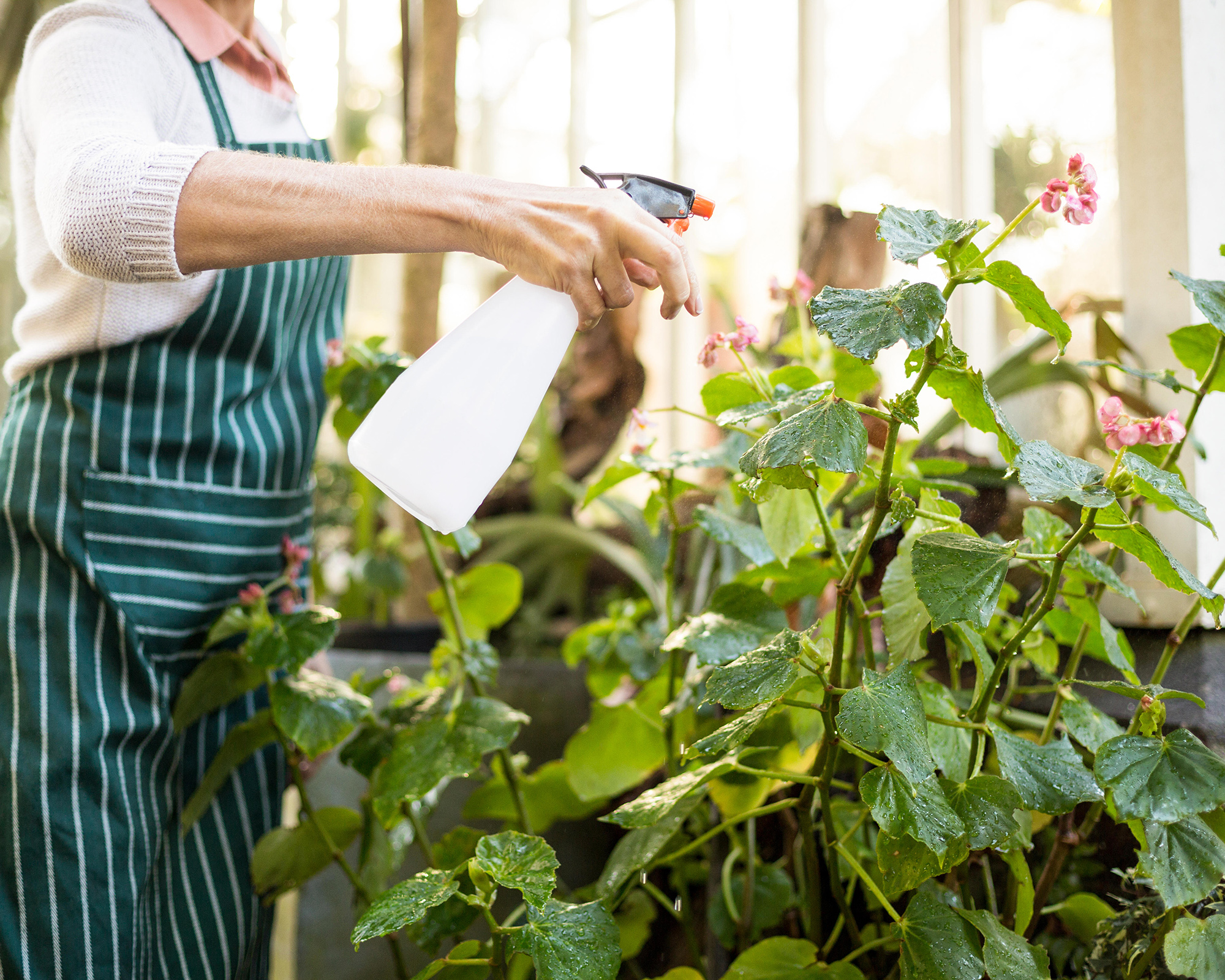
Milk can be combined with water to make a spray for your plants
The pros of watering plants with milk
- There are many benefits to watering plants with milk. First, it is thought the calcium and vitamin B it contains act as fertilizers, increasing growth, plant health and cropping yields.
- Milk has anti-fungal and antibacterial properties, preventing diseases in plants, and it also works as a pesticide. For plant varieties that are generally prone to powdery mildew, Amateur Gardening expert Anne Swithinbank says: 'a weekly spray of one part skimmed milk to 10 parts water helps to prevent the disease.'
- The calcium in milk also helps to treat common plant ailments such as blossom end rot, a condition caused by calcium deficiency. So the best time to water plants with milk diluted with water, is when you notice a brownish black circle at one end of tomatoes, squash or peppers. There are more tips on dealing with tomato blossom end rot in our dedicated guide too.
- Milk contains a substance called lactoferrin, a natural bactericide and fungicide. Horticultural professor and author Jeff Gilman discovered that spraying with milk solution deters rose black spot, and recommends spraying affected roses weekly. It is also said to help deter black mosaic viruses that affect cucumbers, tomatoes, and a host of other plants.
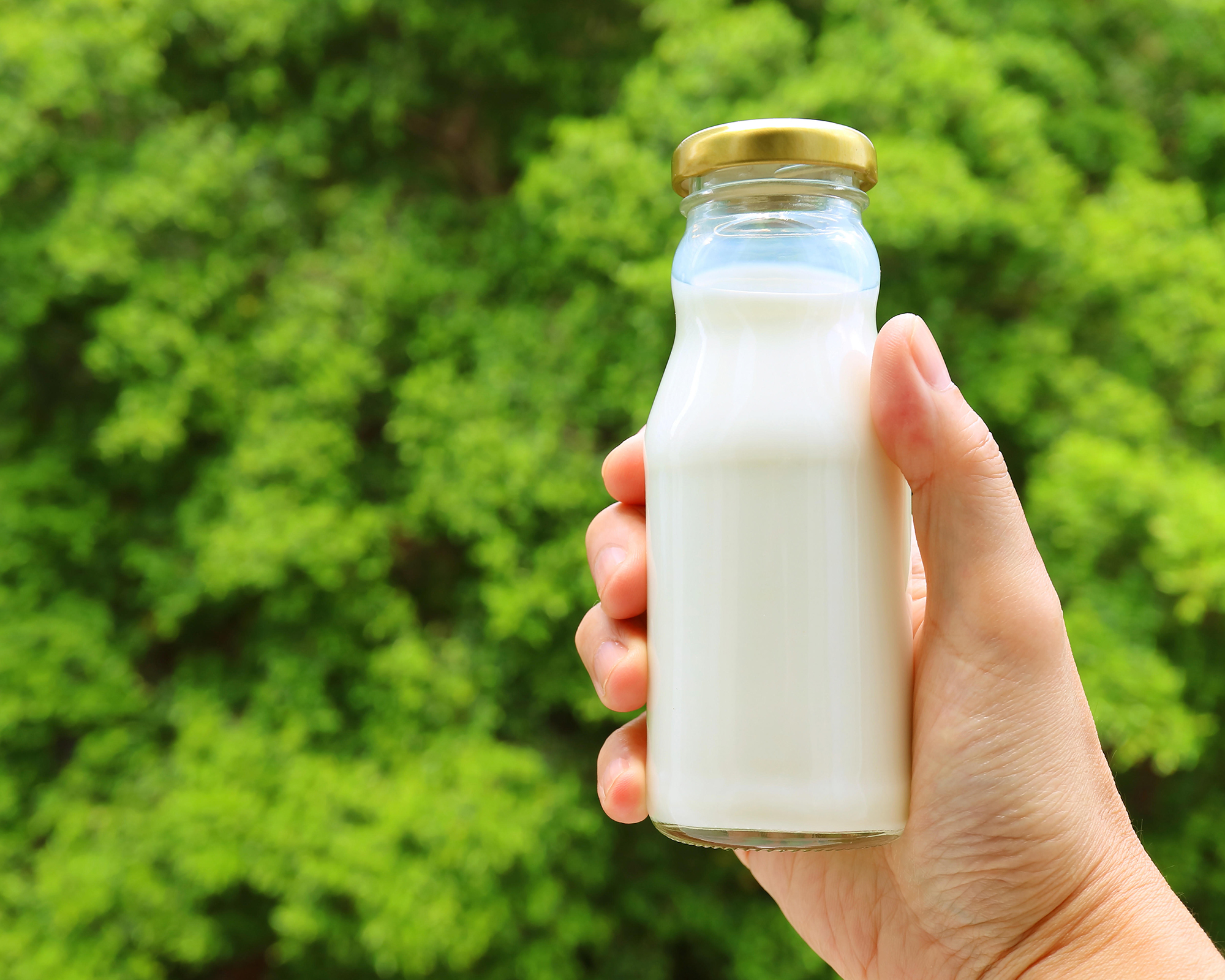
Milk may actually work out pricier than standard fertilizer for large areas
The cons of watering plants with milk
- Although milk can benefit plants, as with watering plants with tea, there are certain caveats. Never use milk undiluted on plants as this can stunt their growth, cause them to wilt and even die. Too much milk can also cause black rot, soft rot and leaf spot on some crops.
- Another downside is nasty whiffs – some people report noticing a sour odor from the milk as it sits on leaves, but this should only be temporary. Some milk odors are stronger than others – it may be the fat that’s causing the smell, so try using 1% or 2% milk rather than the whole-fat kind.
- Although watering plants with milk diluted with water can prevent mildew, it’s unlikely to have much effect once the dreaded mildew has already taken a hold, in which case just cut back or discard plants.
- Milk can act as a fertilizer, but it it doesn’t build soil structure in the way that it would if you added manure to the soil. And if you used milk to fertilize very large areas, it could work out way more pricey than using fertilizer.
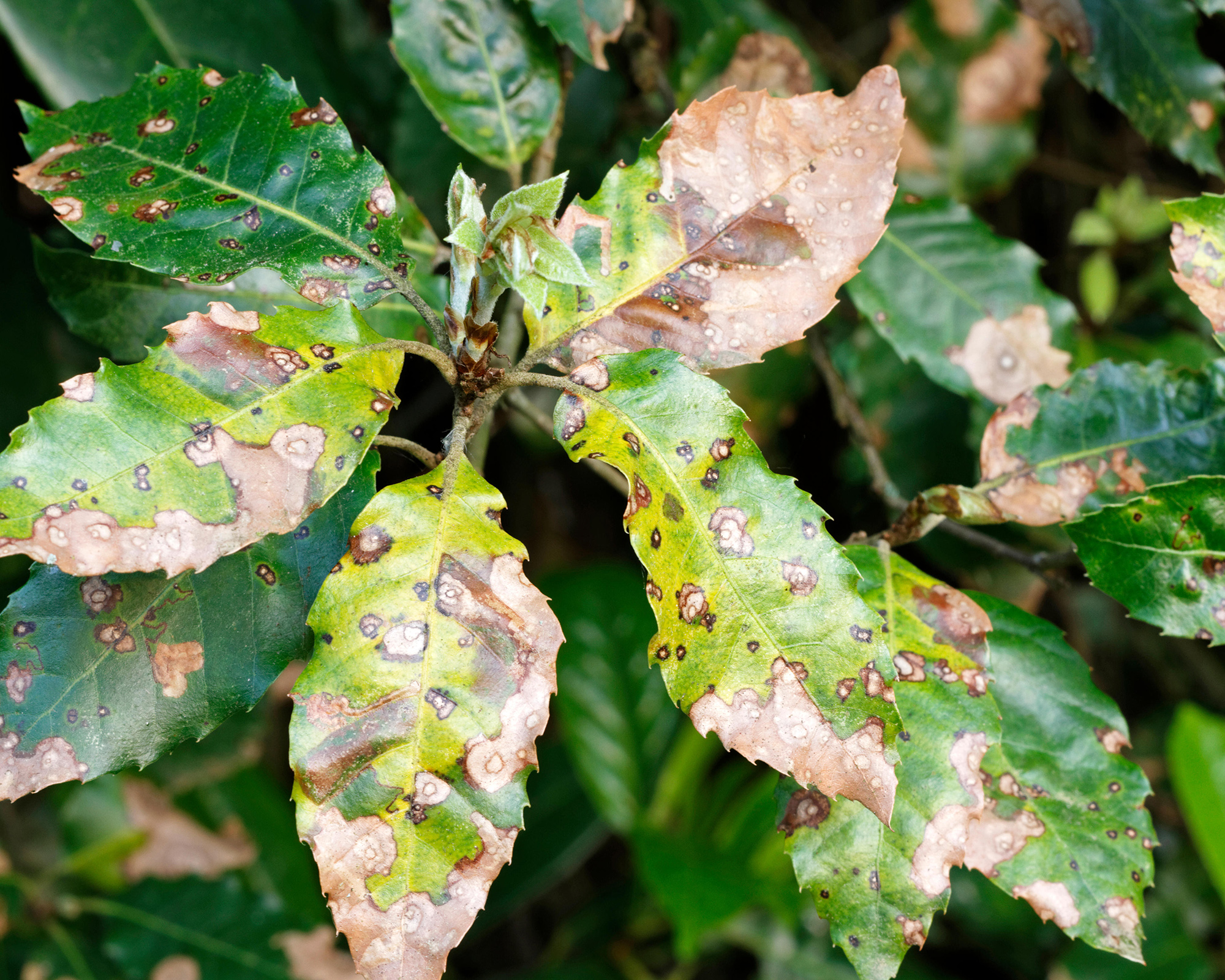
Too much milk can cause leaf spot on certain crops
How to water plants with milk
- Spray plant foliage using a 50-50 milk/water ratio, advises Marie Iannotti of The Spruce. Mix the solution in a spray bottle, (the kind you use to mist houseplants). Shake well and spray.
- If you have a large number of plants to cover, use a large garden sprayer, with a pump action, and spray, covering as much foliage as possible. Aim to coat all the leaves with a fine layer of the milk solution.
- Spraying plants in bright sunlight is not normally recommended. It's a garden water saving tip but also because of the risk of scorching foliage. In the case of milk, however, sunlight is said to create an anti-fungal reaction, which is good for plants.
- Spray your garden and indoor plants monthly as a regular feed. As an alternative to spraying, you can try watering plants with milk solution directly into the soil, at the base of your plants.
- If you’re spraying as a preventative measure against powdery mildew, reapply the solution every 10 days to a fortnight to keep your precious plants safe. A University of Connecticut study by Matthew J DeBacco in 2011 found this was just as effective as using a chemical fungicide. So plan this treatment around your vacations, as watering plants while away might become difficult. Keep going until the dry, humid conditions that give rise to mildew have completely gone.
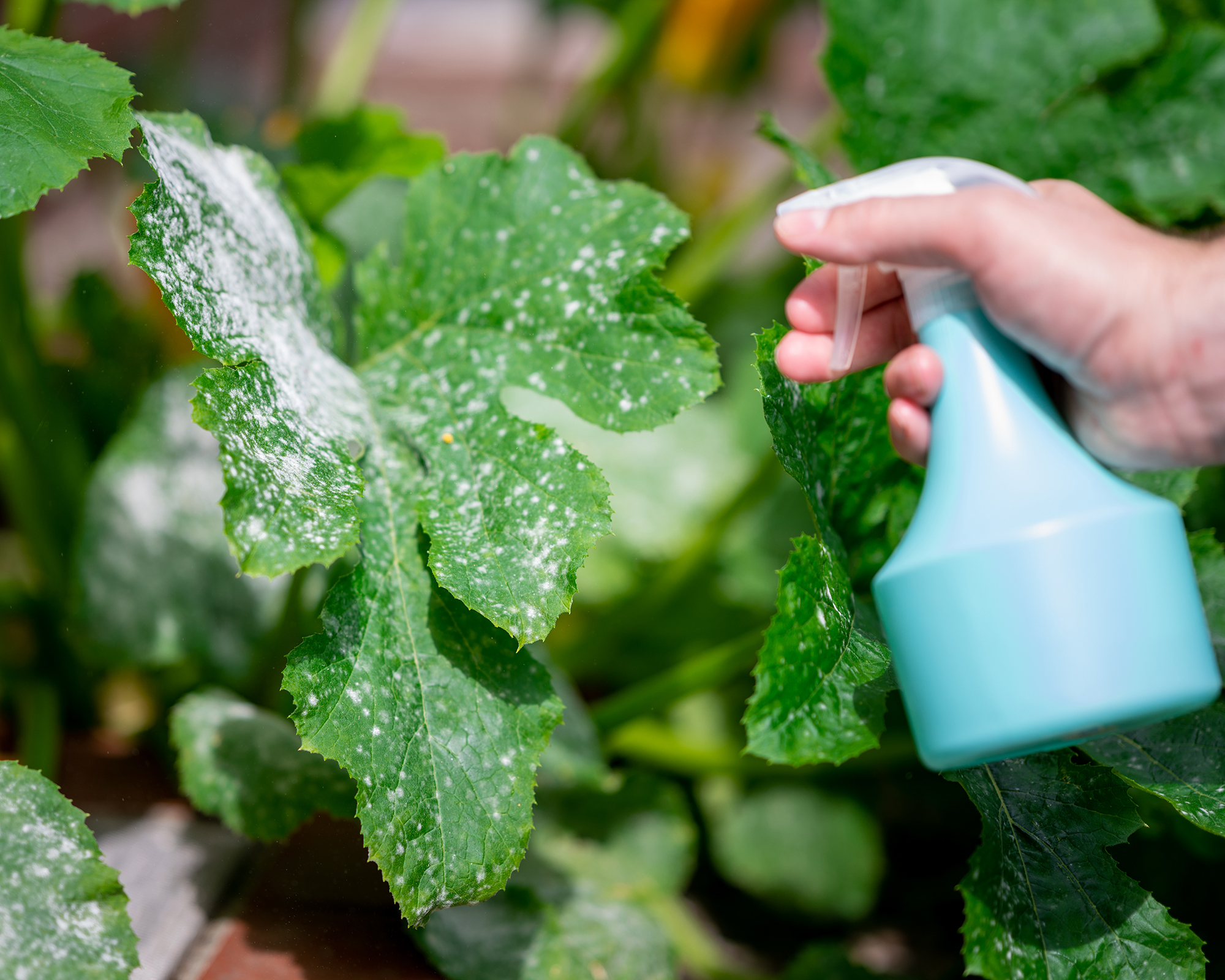
Spray your plants with milk solution every 10 days
Is milk water good for plants?
Watering plants with milk is fine providing you mix it with water first. Milk contains proteins, vitamin B, sugars and minerals like calcium that are beneficial for plant growth, increasing their health in the case of crops like apples, as well as deterring pests and viral and bacterial diseases.
Watering with milk solution can act as a fertilizer, feeding plants, and address fungal diseases, such as powdery mildew. Powdery mildew is a condition caused by plant roots being too dry, which can easily happen in summer. It presents as grayish-white mold on plant foliage and affects flowering plants like asters, and crops like grapes and apples.
Watering plants with milk by spraying them works best as a preventative measure, so it’s best to do it before mildew takes hold. A diluted milk solution is also a great feed for plants like tomatoes and peppers, because it contains the extra calcium they need to grow well.

Geraldine is a gardener and garden writer, who has worked for over 12 years in historic public gardens and private gardens around London. She has written articles for Easy Gardens, Which? Gardening and Women’s Weekly Gardening Special magazines and for gardeningetc.com. She also edited the book ‘Britain’s Favourite Plants’ for the RHS.
